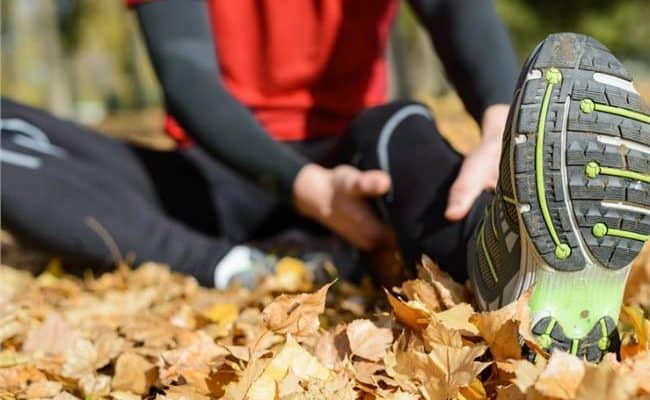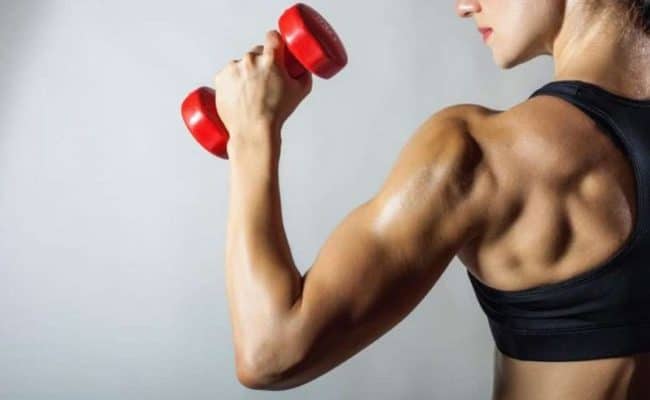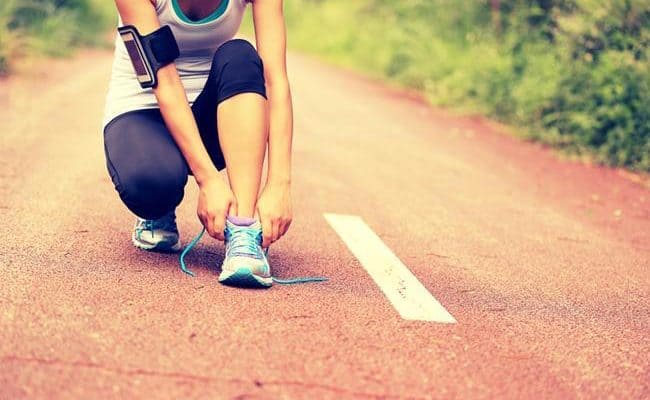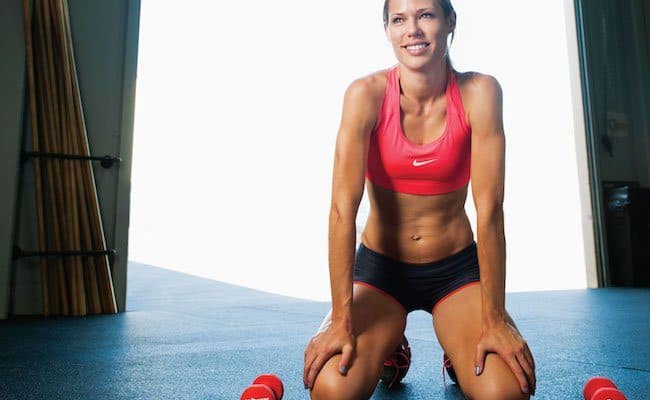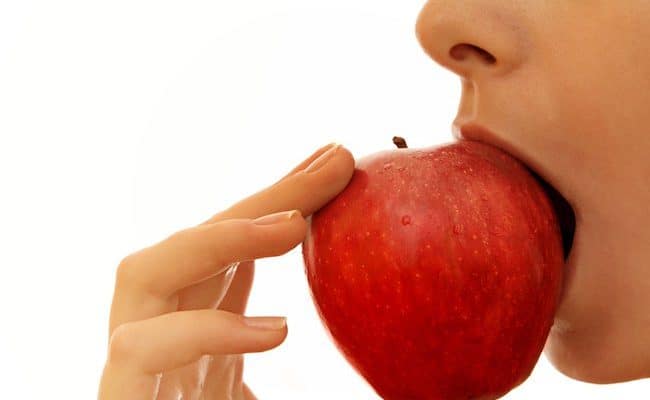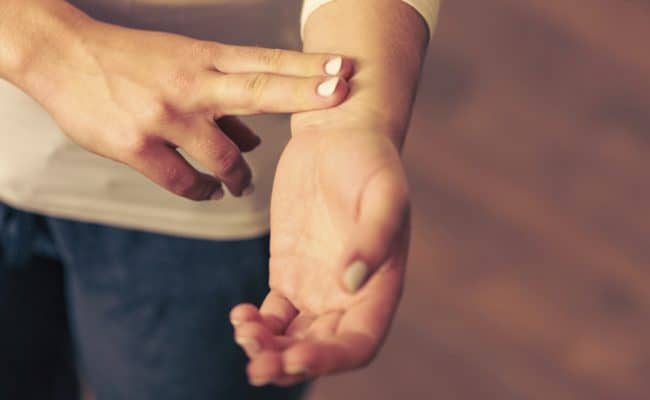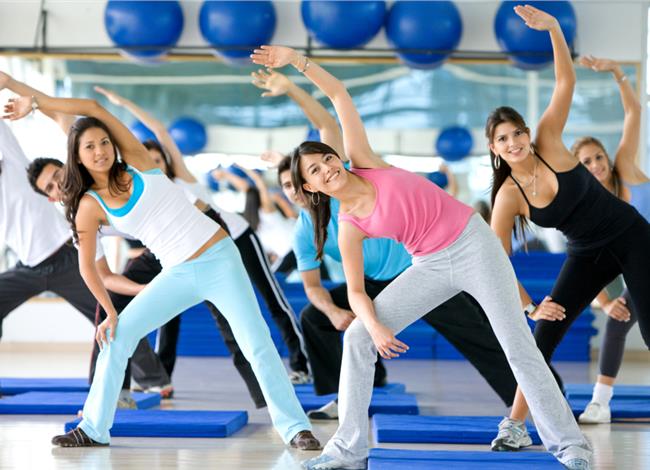
If you workout first thing in the morning, it’s ok if you don’t eat anything before you workout. However, if you exercise for a longer amount or have specific training goals for a workout session, eating something before a workout becomes more important.
To eat or not to eat before a workout can provide mixed answers from health experts.
We can all agree there are many health benefits of exercise, regardless of which type of exercise you choose. We can all agree the food we eat impacts not only our health but also our exercise performance.
There are some mixed opinions among health professionals is if you should eat before a workout or not.
Some recent research suggests there may be some benefits with exercising in a fasted state, and not eating anything can also eliminate digestive problems during exercise.
However, there are also some benefits with eating before working out. Not all research studies have shown a benefit of exercising fasted, and eating something before you workout may give you more energy to push yourself further.
The good news is there are pros and cons for eating and not eating before a workout, and both options can be beneficial.
Below are considerations for which option may be best for you. For individualized recommendations, consult your healthcare team about which option is best for you.
Must read: 5 must do things before your workout and Best time to work out for weight loss
Is it ok to work out on an empty stomach?
If you don’t eat anything before a workout, that’s ok. The body is designed to be able to move even if you haven’t eaten anything lately.
It can be hard to eat something before a workout especially for people who workout first thing in the morning.
You can get through a run, swim, dance, high intensity interval (HIIT) class or any other workout you choose in the morning even if you don’t eat anything before hand.
An exception to this may be if you are exercising for longer than 60 minutes or aiming for specific performance gains such as running faster splits, increasing your muscle mass, etc.
These instances may benefit from eating something before exercise.
If you exercise later in the day and haven’t eaten anything (or very little) all day, you may notice that your energy and strength levels may be lower.
If you have hunger pains, feel light headed or have other symptoms of low blood sugar, it may be best to eat something before your workout or take a rest day.
If you are prone to having digestive issues during exercise, working out on an empty stomach may be best.
Bottom line
It is ok to work out on an empty stomach. In general, if exercise is less than 60 minutes, not eating anything before a workout is fine.
Does working out on an empty stomach burn more fat?
Some research suggests NOT eating anything before a workout could translate to an increased fat burn during exercise which may be beneficial for weight loss.
An important note when looking at research is fed exercise is exercising after you have eaten something even if it was a few hours ago.
Most of our hours being awake are considered in the “fed” state because we have eaten something fairly recently.
Exercise in the fasted state usually means after you wake up or after not eating something more than 4-5 hours before hand.
A 2017 study (1) had overweight men walk in either a fasted or fed (2 hours before exercise) state. Exercise in the fed state had significantly higher carbohydrate utilization compared to the fasted state.
As a result, the fasted state exercise had a significantly higher fat utilization during exercise.
Researchers also found exercise in a fasted or fed state had significantly different effect on genes involved with lipid metabolism.
Researchers conclude feeding before exercise may lower the amount of fat burn during exercise long term.
A 2018 review (2) fasted vs. fed exercise and impact on metabolism found fasted exercise had significantly higher levels of free fatty acids (FFA) compared to exercise after being fed.
A higher level of FFA after exercise suggests a higher amount of fat was broken down for fuel during exercise.
These studies conclude exercise without eating beforehand could lead to a higher fat burn during (and possibly after) exercise. However, not all research has found a significant difference in fat burn from exercise fasted or fed.
A 2014 study (4) assessed changes in lean and fat mass in young women on a low calorie diet that either exercised in a fed or fasted state for 4 weeks. Exercise was for 1 hour three days a week.
Both groups lost significant amounts of weight and fat mass after 4 weeks, but there was no significant difference between the fed or fasted groups.
Therefore, this study suggests exercise in a fed or fasted state was not significant to overall weight loss.
Bottom line
Some, but not all, research shows exercise in a fasted state may increase fat burn. More research is needed to substantiate if exercise in a fasted state is better for fat loss.
Down sides of not eating before a workout
Exercising when you have low energy reserves may increase fat burn, but it doesn’t necessarily mean a higher calorie burn.
In the 2017 study (5) that had overweight men walk in either a fasted or fed (2 hours before exercise) state, the fasted state group had higher fat burn.
However, the overall calorie burn was significantly higher in the group that was fed beforehand.
A 2015 study (6) assessed the impact skipping breakfast had on same day evening exercise. Researchers found total calorie intake was the same between breakfast eaters and the group that skipped breakfast because the group that skipped breakfast ate more for lunch.
The group that ate breakfast had a 4.5% greater exercise output compared to the group that skipped breakfast.
While this study wasn’t exactly looking at exercise in a fed or fasted state, it does suggest skipping meals can impact exercise performance.
In other words, you can’t necessarily “make up” for skipped nutrition later if you’re trying to have peak exercise performance.
Bottom line
Eating before exercise could increase total calories burned and/or maximal output. Therefore, not eating before exercise may lower total energy output in a workout.
Benefits of eating before a workout
Why should you eat something before you work out? Eating something before you workout can provide fuel to your muscles, especially carbohydrates which are relatively easy to break down.
If you are doing pro-longed exercise, greater than 60-90 minutes, eating something before you exercise can be beneficial.
Even if you are exercising less than 60 minutes, eating something could help give you more energy for your workout.
Bottom line
Eating something before a workout can help give you more energy, especially for prolonged exercise.
When should you eat before a workout?
When you should eat before a workout can depend on many factors including what type of activity you are doing and your individual tolerance.
When you should eat before exercise is very individualized; just because someone can eat a snack 30 minutes before a run doesn’t mean it will be best for your body.
A general estimate for most people is to eat something 1-3 hours before exercise.
You don’t need to eat an additional snack or meal before exercise; you can simply time your workouts 1-3 hours after your meals if you work out later in the day.
If you exercise in the morning, you may not have time to eat something 1-3 hours before you exercise.
You could eat something light, like a banana, before you exercise. Or, you could simply drink something like a sports beverage before you get going.
If you are doing an exercise with jarring to your digestive tract, like running, you may need to allow for extra time before you workout compared to other lower impact exercises.
Bottom line
There is high individual variance for when to eat before a workout. In general, eating 1-3 hours before exercise is recommended.
What to eat before a workout
The Academy of Nutrition and Dietetics (7) recommends eating a balance of protein and carbohydrates before exercise. Fat can also be included but should be minimal before exercise.
You don’t need a fancy sports nutrition bar or supplement before you exercise. Real foods can be perfect solutions for pre-workout nutrition.
Examples can include:
- Nut butter and banana
- Half (or whole) sandwich
- Oatmeal
- Toast with nut butter and/or jam
- A handful of dry cereal
All these options naturally provide some carbs and protein. You can experiment with trying different foods for pre-workout energy, but keep in mind it’s not a good idea to experiment with what you eat before a competition.
Bottom line
A pre-work out snack/meal can be a variety of things. A combination of carbs, protein and a little fat is recommended before exercise.
Eating after a workout
Besides eating before a workout, what you eat after you work out is another important consideration. In fact, some health experts argue what you eat after exercise may be more important than what or if you eat before exercise.
After you exercise, your muscle cells are “turned on” to rebuild their muscle glycogen stores. Eating after exercise can help rebuild muscles which can translate to improved fitness gains down the road.
What should you eat after a workout?
This again will depend based on how hard and long you exercise and what, if any, you ate before. In general, it is mainly recommended to get a mix of carbohydrates and protein after exercise.
If you deplete your muscles, like after a long run lasting more than 90 minutes or an exhaustive lifting session, recovery nutrition can be even more important.
Eating a ratio of 4:1 carbohydrate to protein respectively can be a general guideline for optimally rebuilding muscle stores soon after exercise.
Examples of what to eat after a workout can include:
- Smoothie with fruit, dairy (or dairy alternative) and optional protein powder
- Oatmeal with berries
- Greek yogurt with fruit and nuts
- Low fat chocolate milk
- Sandwich or wrap with lean protein
Remember, just because you did a workout doesn’t mean you may not need to add a meal or snack to your daily food intake.
Planning meals around exercise can be an easy way to cover your nutritional needs without increasing your food intake.
However, if you are exercising long periods of time or for multiple sessions per day, you may need to add additional meals or snacks to your diet.
Work with a sports dietitian to assess your needs and build a nutritional plan around your workouts.
Bottom line
Eating after a workout can be just as if not more important than what you eat before a workout.
Conclusion: To eat or not to eat before a workout?
Whether you need to eat before a workout can depend, and there really isn’t one right answer. The reality is either option can work.
If you workout first thing in the morning, it’s ok if you don’t eat anything before you workout. However, if you exercise for a longer amount or have specific training goals for a workout session, eating something before a workout becomes more important.
Some studies suggest exercising in a fasted state may increase rate of fat breakdown. However, not all studies have shown this. Therefore, more research is needed.
If you work out later in the day, chances are you probably have eaten something in the past 4-5 hours. However, if you exercise later in the day and have skipped a meal, some research suggests this could hinder exercise performance.
Your total nutrition for the day is the bottom line for your overall health and how your food intake affects your exercise goals.
